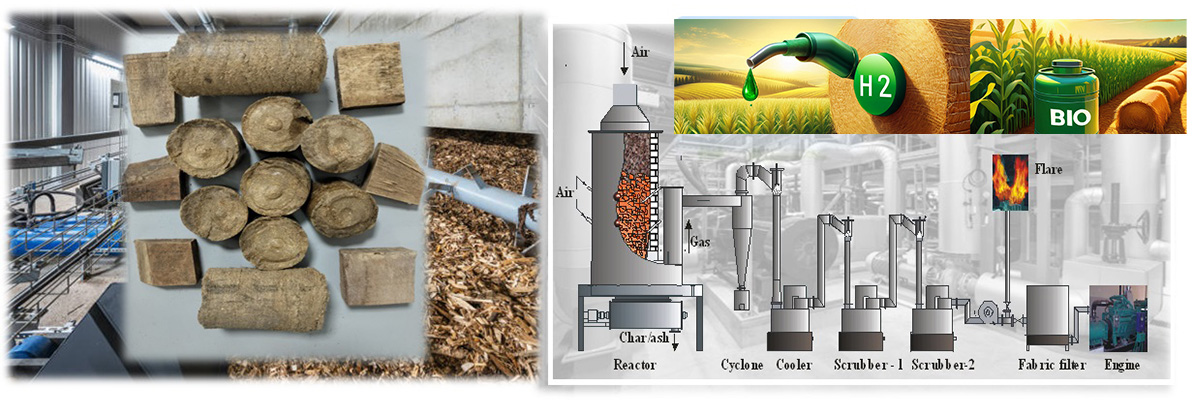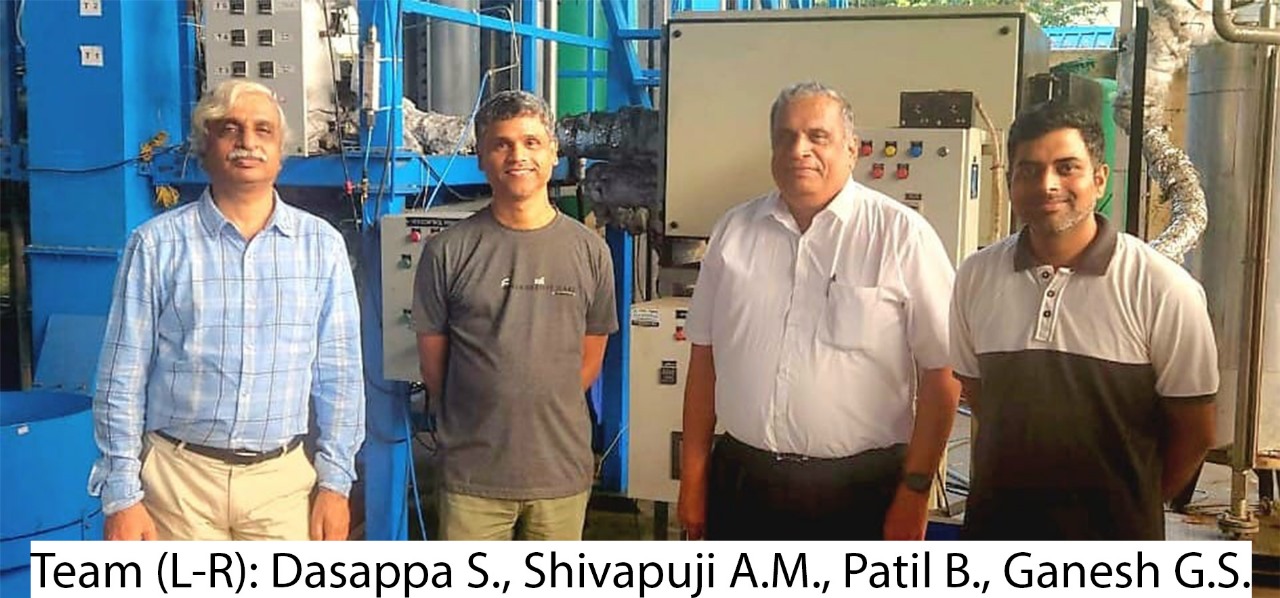Economics of biofuel production
– Aishik Nath

The phrases “hydrogen economy” and “climate justice” have made enough headlines in recent years, underscoring the need to find sustainable alternatives to fossil fuels. Various labs worldwide are working on such options, but cost optimisation remains a work in progress.
In a new study, researchers at the Centre for Sustainable Technologies, IISc, explored the economic viability of small-scale biomass-to-X (BtX) systems for converting plant biomass into bio-hydrogen (BtH) and methanol (BtM). The researchers suggest that these systems can help utilise distributed biomass nationwide, creating more jobs and boosting farmer incomes by monetising surplus crop residues.
The team calculated the minimum selling price (MSP) for BtH and BtM systems at a 12% discount rate. They established that the source of auxiliary energy required for system operations affects the life-cycle emissions and costs. Based on this, they considered three different sources of energy: external fossil fuel-based sources (EXT), producer gas generated at an auxiliary air gasification unit (AG), and partial diversion of the syngas produced from the main gasification unit (SYN). The team also explored the effects of variables such as the system’s production capacity, composition of the gas produced, and discount rate on the MSP.
The team estimated the MSP of BtH to be Rs 263/kg; by contrast, the MSP is Rs 300/kg for hydrogen produced by electrolysis (splitting water). Under similar conditions, the MSP of BtM was estimated as Rs 71/kg. The study suggests that the cost gap can be further reduced by monetising carbon credits (rewards for choosing greener alternatives) that can be earned on adopting BtX systems, availing financial grants, and reducing the cost of procuring biomass feedstock. They also add that adapting the same system for multiple products can further cut costs.
The study also highlights the long-term benefits of BtX systems: lower pollution, increased jobs and a reliable source of green energy. The development of such systems and implementation of meaningful policies to support BtX can make these advanced biofuels a beacon of hope for the planet.

REFERENCE:
Ganesh GS, Patil B, Dasappa S, Shivapuji AM, Economics of small-scale biomass-to-X systems for advanced biofuel production – A case study from India, Energy Conversion and Management (2024).
https://www.sciencedirect.com/science/article/abs/pii/S0196890424007581
LAB WEBSITES:
https://cgpl.iisc.ac.in/index.html
https://cst.iisc.ac.in/cst/





